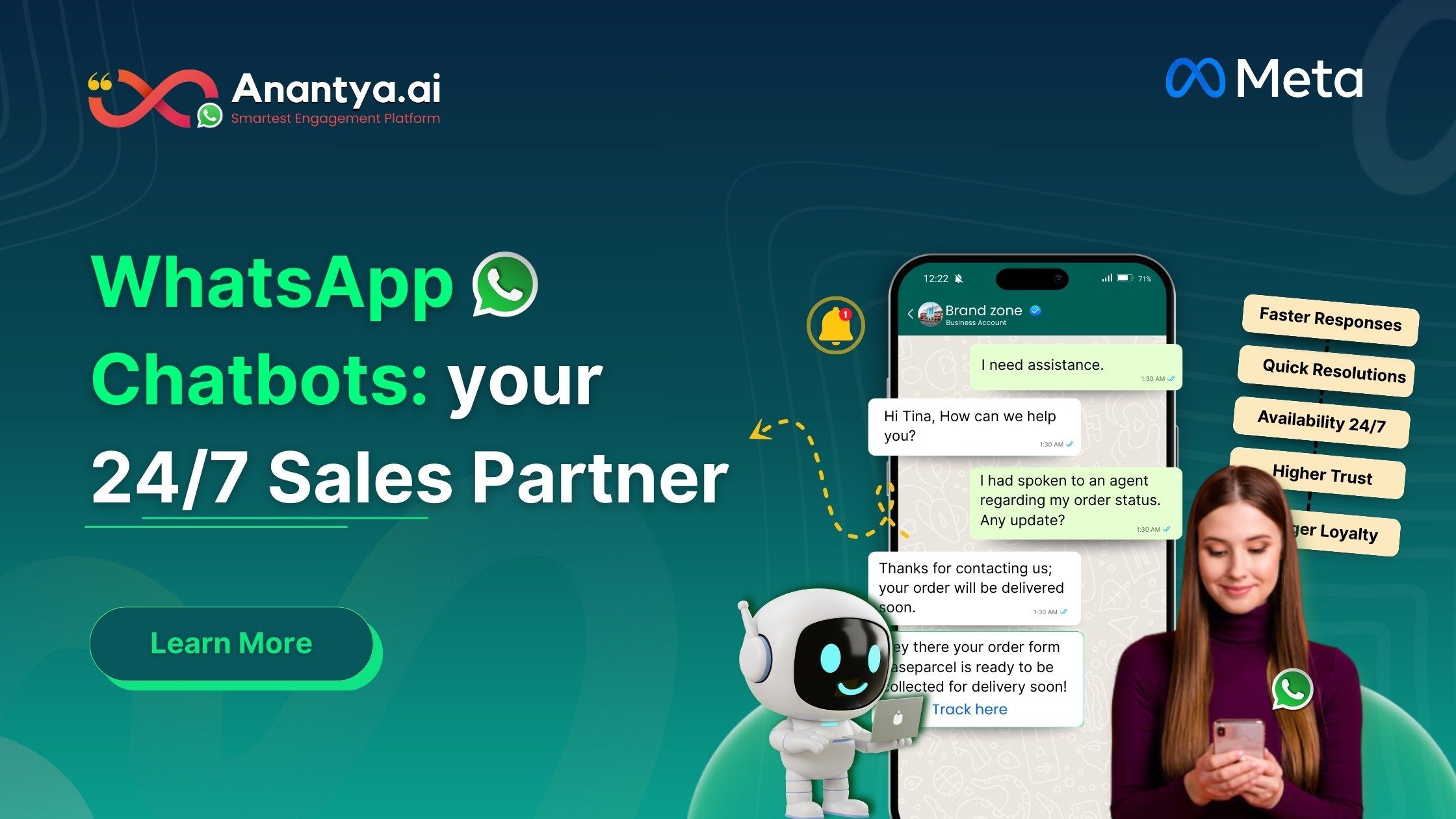The New Age of B2B Lead Generation: WhatsApp Chatbots
Introduction
B2B buyers now expect the high speed and convenience of consumer messaging. In fact, 82% of buyers want an “immediate” response to their inquiries. Traditional channels lag behind: email inboxes are flooded with open rates around 20%, and cold calls connect only 2% of the time. This gap in responsiveness means leads often go cold before sales can respond. To avoid these delays, businesses should connect with prospects directly through real-time WhatsApp chats instead of using slow processes.
WhatsApp: A New Lead-Generation Channel
WhatsApp offers unparalleled reach for B2B outreach. With over 2 billion global users and open rates often above 80–98%, a WhatsApp message is far more likely to be seen than an email. Sales representatives can share rich media (brochures, demos, product videos) directly in-chat, making messaging far more engaging than a static web form. For instance, when a potential customer clicks the "Send Message" button on an advertisement or website, they are immediately sent to a WhatsApp flow where a chatbot welcomes and verifies them.
A typical WhatsApp lead-generation flow starts when a user clicks an entry point (ad click, QR code, or chat widget) and enters an automated conversation. The bot asks a few key questions (company, needs, budget, etc.) and tags each lead as interested/not interested/prospect. Interested leads are routed immediately to sales reps. Because every conversation can sync to a CRM, sales and marketing share the same data – a WhatsApp CRM integration “improves every step” by logging all interactions. This end-to-end chat funnel drastically cuts response times and captures purchase intent almost instantly.
AI Chatbots on WhatsApp
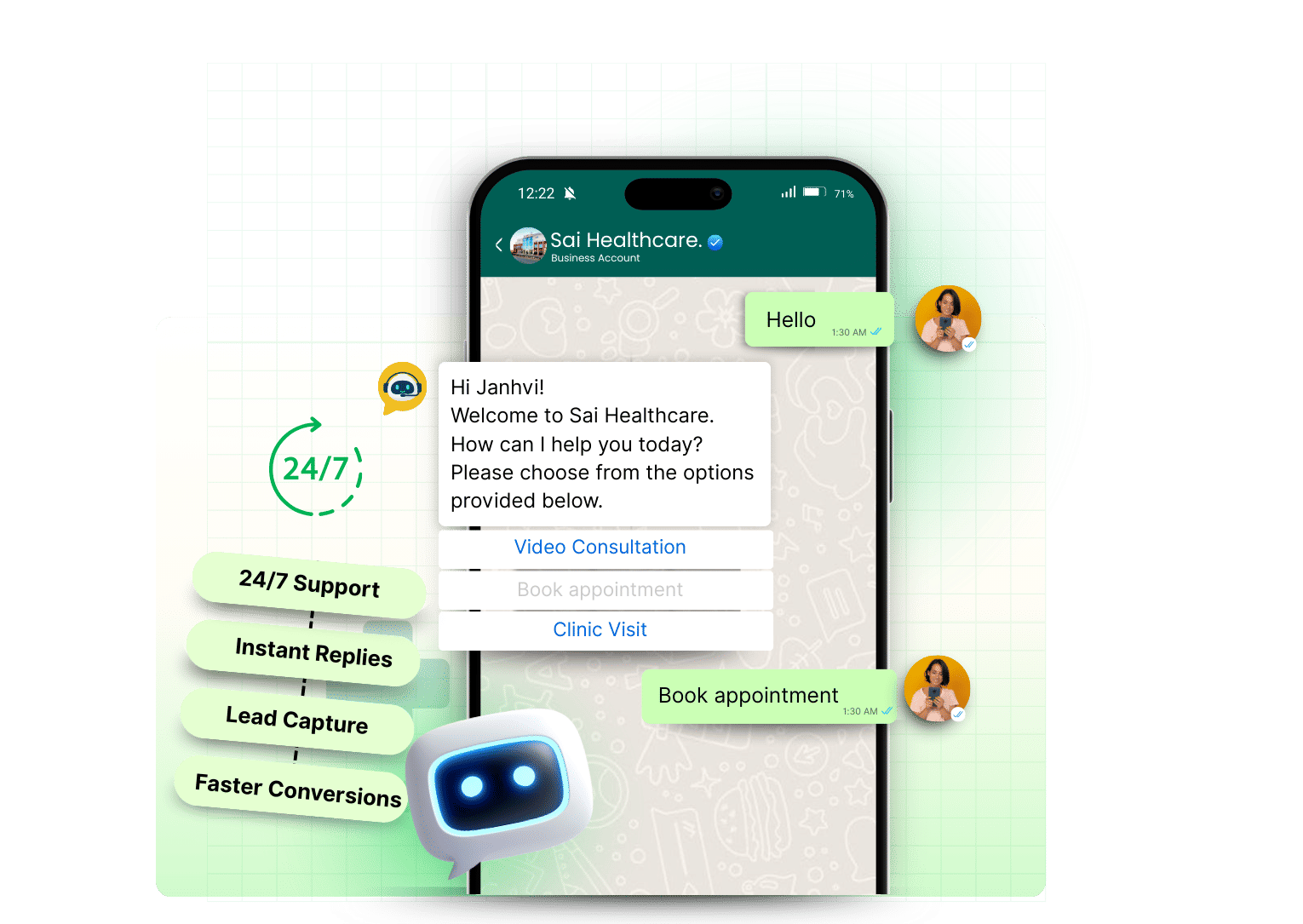
A WhatsApp AI chatbot is an automated assistant that uses natural-language AI to simulate human conversation. Think of it as a 24/7 virtual representative that answers inquiries instantly. For example, AI-powered chatbot can automate real-time conversations to handle queries, capture leads, and engage users effectively. The bot is literally “always available,” answering FAQs and qualifying prospects around the clock.
You train the bot on your product details and FAQs so it pre-qualifies leads on its own. You can configure flows to “ask pre-qualifying questions automatically,” route high-intent leads to your sales representative immediately, and segment leads for targeted follow-up. AI sales bots “qualify leads, schedule demos, and follow up across platforms” to accelerate the pipeline. Additionally, using the official WhatsApp Business chatbot API ensures all messages are sent from a verified business account, increasing customer trust and reliability.
Conversational ads extend this power further. For example, a click-to-WhatsApp-ad opens an immediate chat flow. As “click-to-chat links in ad campaigns” drive high-intent leads directly into WhatsApp, and adding a chat widget lets prospects start chatting instantly. In the example, a Facebook ad’s “Send Message” button launches a WhatsApp bot that greets the visitor and offers quick replies (like “I want a demo”), seamlessly moving the lead into qualification without manual intervention.
Benefits for Businesses
- 24/7 Instant Engagement – An AI WhatsApp chatbot is always online. It responds immediately to questions and qualifies leads the moment someone messages, even outside business hours. No more missed opportunities while reps are offline.
- Resource Efficiency – Automating routine lead-qualification frees your team for high-level work. Bots that handle repetitive Q&A let your staff “accomplish more with less,” cutting support costs and reducing workload.
- Higher Conversions – AI bots give “instant, personalized interactions” which “build trust and improve satisfaction,” ultimately boosting conversion rates. A lead is far more likely to convert via a relevant one-on-one chat than an ignored email.
- Seamless Integration – Most platforms support out-of-the-box WhatsApp chatbot integration with your CRM and marketing tools. So chat conversations automatically create or update leads in your existing pipelines.
- Better Lead Quality – The bot automatically eliminates leads that don't fit. Only high-potential prospects will get to your salespeople if you ask the appropriate qualifying questions upfront.
- Unified Lead Data – A WhatsApp Business chatbot logs every conversation in your CRM. With all interactions in one place, marketing and sales stay aligned. A full CRM integration means “every WhatsApp conversation is logged” and visible to sales, ensuring no lead falls through the cracks.
- Measurable ROI – Chatbots enable tracking of every lead interaction. There are certain benefits for businesses who invest in conversational AI: according to one research, 67% of businesses said that using chatbots enhanced sales.
Alternatives and Competition
Many B2B teams still employ email marketing, LinkedIn outreach, and webforms in spite of these restrictions. Prospects must exert effort while completing online forms, inboxes are crowded, and email engagement is often poor. Some companies use website chat widgets or even Slack/Teams, but those either limit your audience or miss external buyers. In contrast, WhatsApp targets a channel your prospects already use daily. Interestingly, 58% of B2B websites now have a chatbot, yet most are generic web bots. Very few exploit WhatsApp specifically. This gap is our opportunity: a well-built WhatsApp business chatbot can outpace standard methods by meeting prospects one-on-one on their phones.
Emotional AI WhatsApp Chatbot
Cutting-edge chatbots can analyze user sentiment and adapt on the fly. An empathetic AI bot on WhatsApp might sense frustration in a lead’s reply and respond with empathy or simpler info. Emotional bots “detect and respond to human emotions and adapt to the emotional state of users in real time”. In B2B sales, this means a chat that actually reads the room (or inbox). Combined with generative Natural Language Processing (which can tune tone or style to the lead’s preferences), our bot can feel almost human – a true WhatsApp chatbot AI doing lead nurturing at scale.
Create Your Anantya.ai Account
Use Cases & Examples
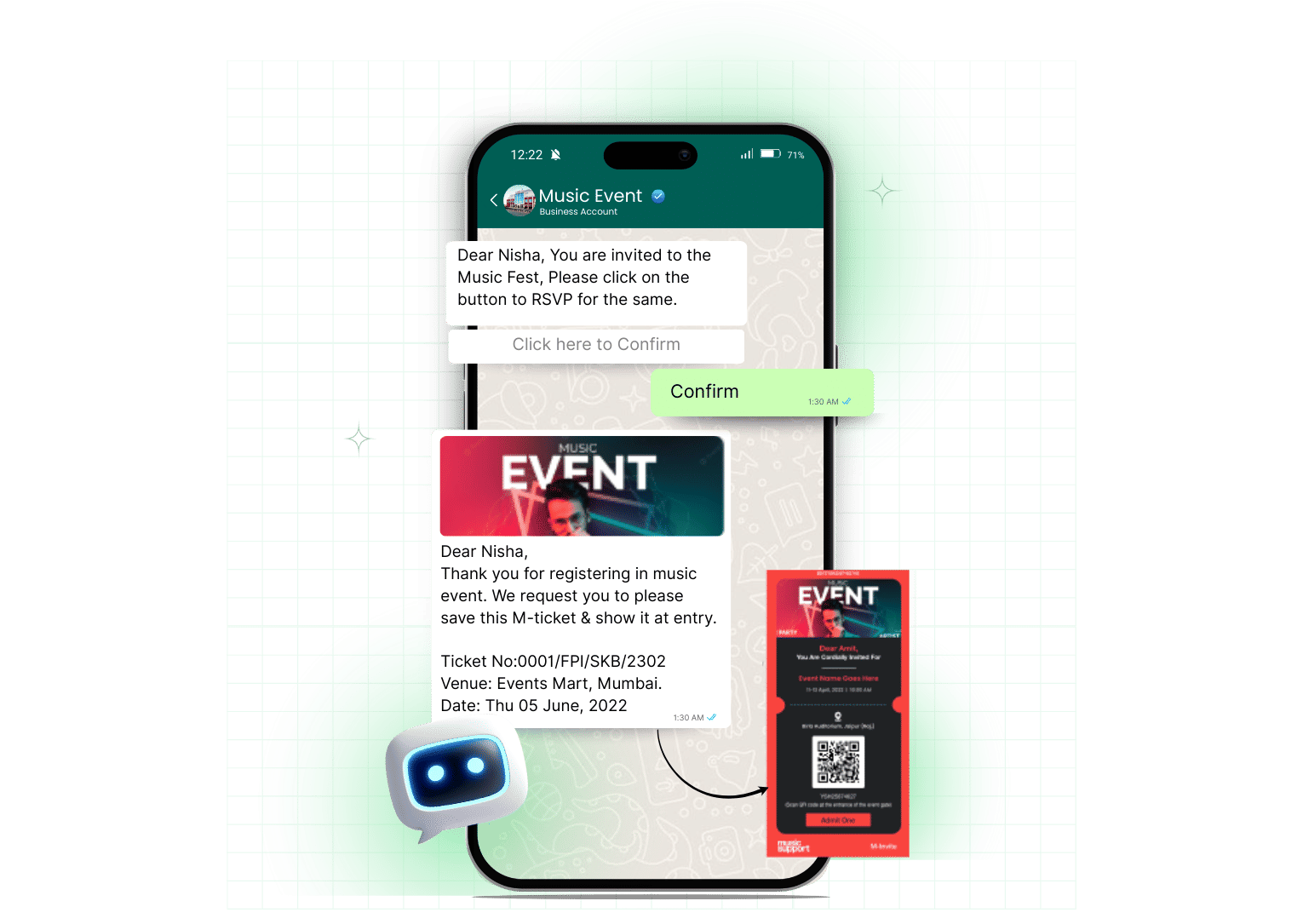
- Event Registrations: Instead of a long web form, prospects chat to sign up. The bot asks for a name, email, company, etc., then sends a calendar invite. This is highly effective: “an integrated approach allows the business to capture valuable lead data into the CRM system”. This conversation-based signup eliminates friction and instantly feeds leads into your pipeline.
- Product Launches/Demos: A WhatsApp bot can proactively pitch new offerings. For example, a device maker might deploy a bot that asks what features a prospect wants and then “offers individual advice and information on products which best match these needs”. Interested users can then be prompted to book a demo or trial. This dynamic Q&A not only yields qualified leads, but also, it “establishes a fonder motional link” with your brand, boosting conversions.
- Content Distribution: Use chat instead of email to deliver content like whitepapers or case studies. An AI bot can send targeted resources to segmented leads and follow up on engagement. With smart chatbots, brands can share content in a targeted and personalized way. Compared to email, open rates are significantly higher for these messages as they are delivered straight to a prospect's phone.
- Interactive Campaigns: Gamified chats (quizzes, contests) on WhatsApp can supercharge lead capture. Try using a chatbot to carry out a quiz with prizes. Participants engage in the chat and provide contact info to play. Such “interactive competitions” on WhatsApp deliver consistently high engagement and a steady stream of leads. Every interaction becomes an opportunity to capture or qualify a lead.
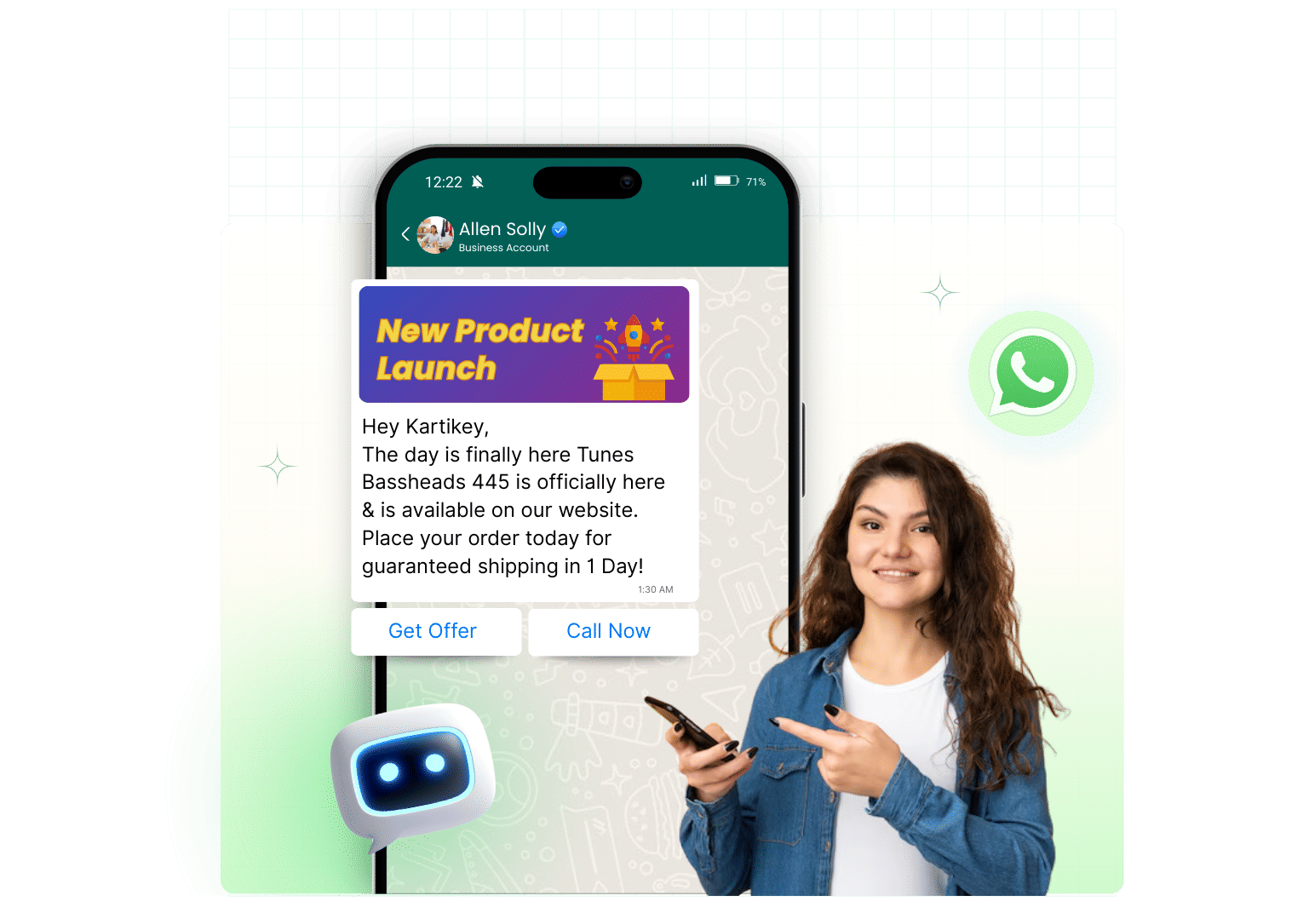

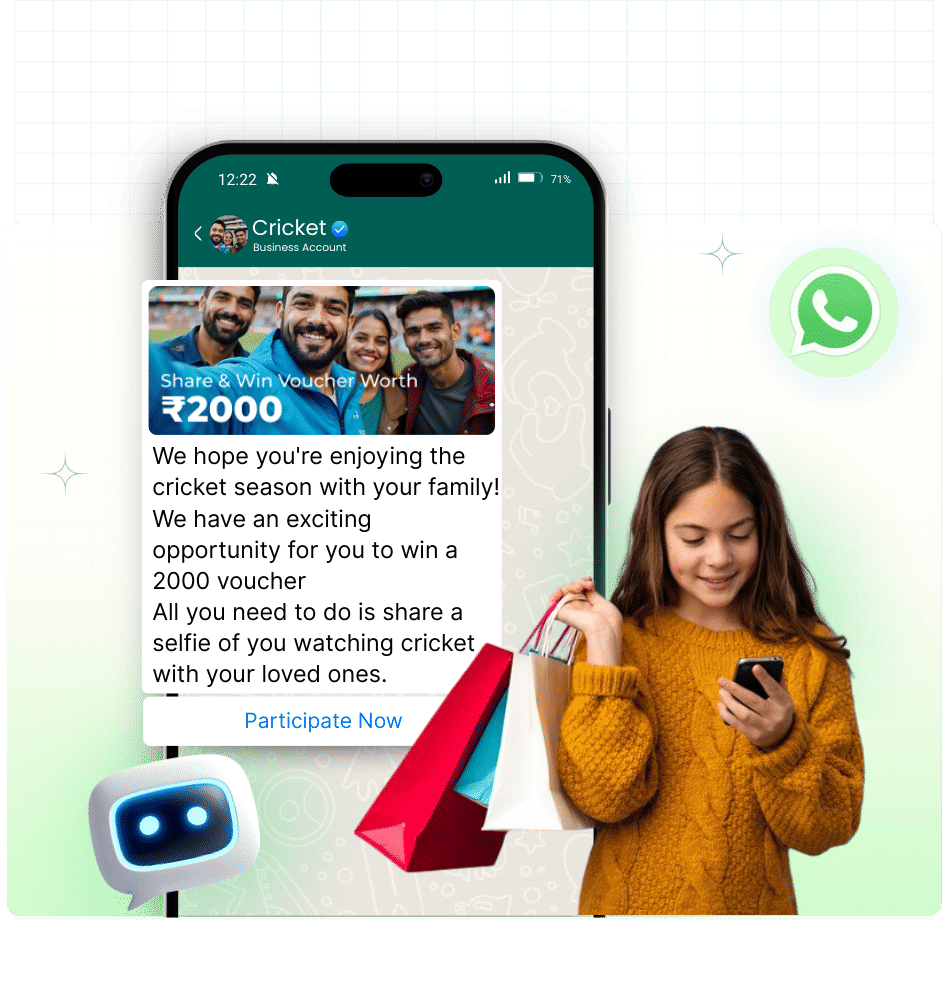
Conclusion
WhatsApp chatbots are basically flipping B2B lead generation on its head. I mean, who actually picks up the phone from an unknown number or replies to cold emails these days? Nobody I know. But drop a message on WhatsApp and, bam, suddenly you’re chatting with a bot that’s sharp enough to figure out if you’re worth the time.
And the wild part? These bots don’t sleep. They’re out here working overtime, sliding into DMs at 3 a.m. while your sales team is drooling on their pillows. No more leads falling through the cracks because someone missed a call or forgot to follow up. Plus, as AI keeps leveling up (seriously, have you seen how they’re starting to get all emotional and “human” now?), these bots are only going to get smoother at chatting people up.
If you’re smart, you’ll hook these chatbots right into your sales and support systems so everything just clicks. No awkward hand-offs or conversations getting lost in the Bermuda Triangle of CRMs. Honestly, if you’re not already looking into this, you’re basically letting your competition steal your lunch money. Get on it—your future self (and your pipeline) will thank you.
WhatsApp chatbot is like having a team member on WhatsApp, available 24/7. It answers questions, shares brochures or demos, and books sales calls—so no lead is ever missed.
Rather than waiting for emails or phone conversations, WhatsApp chatbots get in touch with potential customers as soon as they express interest. They immediately provide important leads to your sales staff by asking brief questions like budget, needs, and firm name. No chasing or waiting.
Simple, people actually check WhatsApp. Emails get buried in crowded inboxes, and hardly anyone picks up a cold call from an unknown number. But a WhatsApp message? Most people open it within minutes. That’s why response rates are way higher.
You can respond to prospects instantly, even at midnight. Your team saves time since the bot handles FAQs and routine queries. Conversations feel personal, which builds trust and improves conversions. Everything can be logged straight into your CRM so nothing gets lost.
Yes, most of the chatbots do. Every chat can be recorded in your system, which means sales and marketing see the same information due to which there are no more duplicate entries or missed follow-ups.

